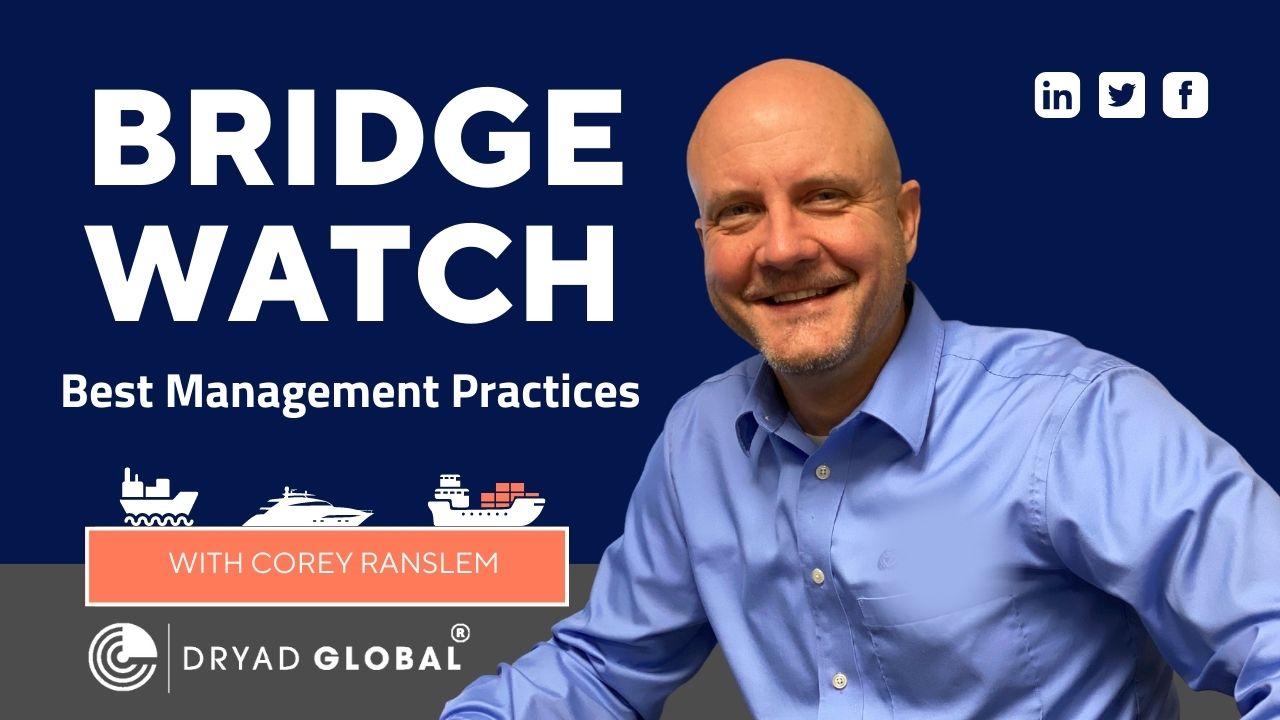In this episode of Bridge Watch with CEO Dryad Global Corey Ranslem, he talks about Best Management Practices in maritime security.
The International Maritime Bureau recently announced that global piracy incidents are at an all time low. However, maritime security is much more than incidents of piracy. Ship operators and yacht management companies must still understand the issues on land that affect maritime security operations.
Geopolitics, civil unrest, supply chain issues, force majeure are all factors that need to be considered when we look at High Risk Area (HRA) transits and voyages across the world.
Dryad Global's weekly Maritime Security Threat Analysis gives an accurate overview on many of the factors that can affect MarSec.
Access the latest version via https://www.dryadglobal.com/maritime-security-threat-advisory

So what steps do commercial ship operators, cruise line CSOs and yacht management companies need to consider?
1. Access qualified and accurate information on BMP for maritime security, maritime crime and cyber security.
2. Check with insurance providers, relevant flag states and vessel classes to make sure you have all of the information you need for your transit.
3. If you're considering adopting a new route, always work with a reputable intelligence risk company. Anyone can give you open source, generic information, but what you need is intelligence that intertwines data with a current and comprehensive understanding of geopolitic events. During a transit the situation on the ground at your port of call can change rapidly so it's important to know the risks you are facing.
4. Once armed with strong intelligence and risk analysis you are then in a position to begin planning.
5. Based on the intelligence do I need to consider extra training requirements or additional security measures? What will I do in the event of an extended transit? HRA's can change rapidly.
Make sure you've got fast and accurate access to real-time intelligence and risk analysis.







